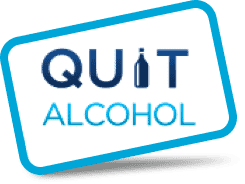The New York State Association of Chiefs of Police has recently written a letter to Governor Andrew Cuomo calling for “Uber, Lyft and other ride-hailing applications to be approved for upstate New York to reduce drunken driving,” reports the Times Union. The letter was written by David Zack, the police chief of Cheektowaga, NY. Zack included some statistics that are hard to ignore.
Just over half (51%) of all licensed drivers live in upstate NY, but the region accounts for 65% of the state’s impaired/drunken driving arrests. Only 24% of such arrests occur in New York City. These stats become even more eye-opening when you realize that NYC is home to 42.5% of the entire state. Not to mention, when it comes to land, upstate New York is most of the state. All of downstate is NYC, Long Island, and half of the Hudson Valley. Upstate includes Buffalo, Syracuse, Albany and Rochester, all large cities with big populations.
Zack also referenced the fact that 59% of New York’s fatal and injury-causing vehicle accidents happen upstate. Again, the percentage for NYC is 24%. “Downstate, there is more access to public transportation than there is upstate. If you’re going to make an impact upstate, you’re not going to build a subway,” said Zack.
How Ride-Sharing Helps
Angela Dills and Sean Mulholland conducted a study on behalf of Western Carolina University regarding ride-sharing and vehicle accidents. The researchers surveyed over 150 cities and/or counties from 2010 to 2013. It turns out “…Uber’s entry lowers the rate of DUIs and fatal accidents.” Beyond that, the researchers also found “declines in arrests for assault and disorderly conduct” in places with ride-sharing.
Let it be known that Uber is just one company that offers ride-sharing, but the company concept have become synonymous. This is similar to how many people call tissues ‘Kleenex’ when that is indeed a brand name. Companies like Lyft and Hitch-a-Ride are just like Uber, and there are several of them. Still, in upstate New York, if you don’t want to drive, you’ll be taking the bus or a taxi.
Deanna Russo, a New York resident, has been an advocate for sober driving since 1998, when her sister was killed by a drunk driver. As of lately, Russo advocates for ride-sharing to come upstate. “We are not in New York City where there are cabs at every corner, on every street. This is easily something that could come to Western New York and it would work,” said Russo to Time Warner Cable News.
The bottom line is this: “Uber entering a jurisdiction lowers its rate of DUI arrests and traffic fatalities, and lowers arrest rates for assault and disorderly conduct,” as put by The Federalist.
We’ve Helped Thousands of Individuals Overcome Drug and Alcohol Addiction
Start exploring addiction rehabs
- Free & confidential helpline
- Connect with an expert rehab advisor
- Understand and review treatment options
In Conclusion
Uber and Mothers Against Drunk Driving (MADD) co-produced a report at the beginning of last year that explained the impact ride-sharing has on drunken driving. Since July of 2012, Uber has prevented an estimated 3,100 alcohol-related car crashes. At the time of the report, the number was 1,800, but it’s figured that Uber prevents 60 crashes per month. This is ALL just in the state of California.
Maybe it’s about time New York hops on that Uber-wagon.

